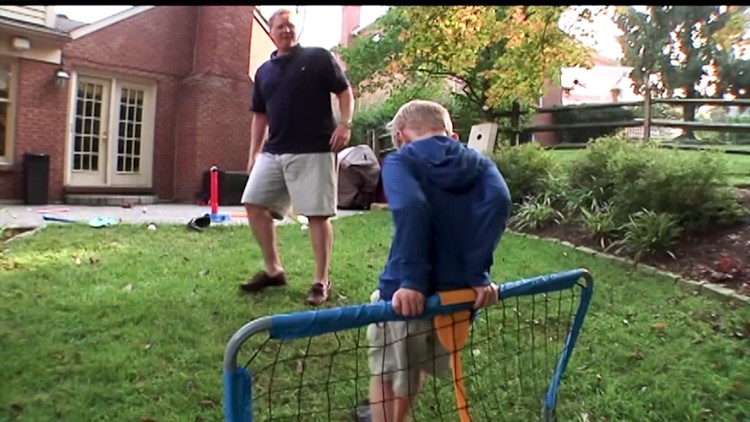Kids who show problem behaviors in early childhood, like aggression, are likely to have those behaviors continue as they age, possibly impacting a child’s social development and success in school. Now new research from The Ohio State University indicates for some families, quality time with dad can make a difference.
Many studies already suggest that mom’s playtime with kids is time well spent. They’re developing bonds and boosting self-esteem. But what about dads? Child developmental psychologist Sarah Schoppe-Sullivan, PhD, wanted to see what impact dads would have on their kid’s externalizing behaviors, like aggressiveness, and internalizing behaviors, like anxiety. Social scientists used information from The Fragile Families and Child Well-Being study, a study of 5,000 children born between 1998 and 2000 in large U.S. cities. Schoppe-Sullivan assessed behavioral problems at age five and again at age nine and measured the engagement of a child’s father.
“So it seemed like fathers’ greater involvement with their children when children were five protected those children from both types of behavior problems when they were nine,” Schoppe-Sullivan told Ivanhoe.
The research also showed children living in poverty had higher rates of problem behaviors, but father involvement buffered some of the negative effects. Schoppe-Sullivan says even a few minutes of dad time daily will help.
“Reading or language-based interactions are very important,” she stressed.
Also, build something together, play a game, or take a short walk. These are activities that foster dad and child interaction, make memories, and boost good behavior.
Social scientists say they are still not sure exactly why fathers’ engagement makes the difference. Schoppe-Sullivan says parents’ differing play styles may be one factor. For example, dads may be more likely to roughhouse than moms and children may find that type of play stimulating, but she says more research is needed.
Contributors to this news report include: Cyndy McGrath, Supervising and Field Producer; Milvionne Chery, News Producer; Dave Harrison, Editor; Kirk Manson, Videographer.
Produced by Child Trends News Service in partnership with Ivanhoe Broadcast News and funded by a grant from the National Science Foundation.



